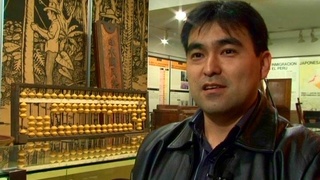Interviews
What is Nikkei? (Japanese)
(Japanese) Well, in my definition of what “Nikkei” means nowadays, I believe Japanese-born people are included as well. It’s probably a matter of awareness. The original definition simply includes anyone born with some amount of Japanese blood in them. So the “Nikkei” of today have grown into quite a large group. When you call someone a Nikkei sansei or yonsei, not only can it mean that this person’s grandfather and grandmother were both Japanese; it can also mean that only the grandfather was Japanese, and this person would still be considered “Nikkei.” So it’s really a matter of awareness, isn’t it? Several generations later, even if people do have a Japanese ancestor from generations before, perhaps they wouldn’t consider themselves Nikkei at all. If you think about it that way, it sure seems like there’s a great difference in how each individual perceives what “Nikkei” means.
Date: October 7, 2005
Location: California, US
Interviewer: Ann Kaneko
Contributed by: Watase Media Arts Center, Japanese American National Museum











